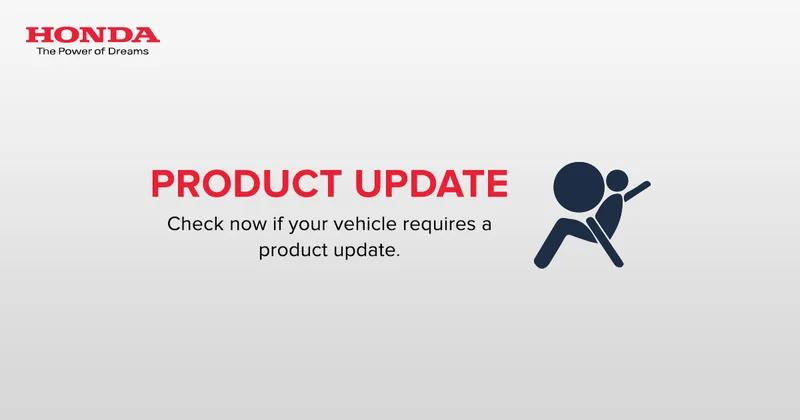Honda Recalls: What Happened and The Potential Wheel Detachment – What Reddit is Saying
Honda's Wheel Recall: A Bump in the Road to a Driverless Future?
Okay, let's dive into this Honda recall. 400,000 vehicles recalled because of potentially detaching wheels? At first glance, it's easy to see the negative headlines, but I see something else entirely: a critical opportunity to refine the safety nets we'll need as we accelerate toward a world of autonomous vehicles.
It seems that certain 2016-2021 Civic models with those stylish 18-inch alloy wheels might have a manufacturing defect. The lug nuts, those unassuming heroes that keep our wheels firmly attached, could loosen over time, potentially leading to the wheel parting ways with the car. A bit unnerving, I’ll admit. But here’s where my mind starts racing: what does this tell us about the future of automotive safety, especially as we hand over the reins to AI?
The Devil is in the Details (and the Lug Nuts)
Here's the thing: manufacturing defects happen. Even with the most rigorous quality control, the occasional flaw slips through. The key is how quickly we identify and address these issues. Honda is offering free inspections and repairs, which is exactly what you want to see. But it also begs the question: how can we predict these failures before they happen, especially in systems far more complex than a lug nut?
Imagine a future where self-driving cars are the norm. We're talking about millions of lines of code, intricate sensor networks, and AI algorithms making split-second decisions. What happens when a subtle flaw in the code, a microscopic crack in a sensor, or a glitch in the AI leads to a critical failure? It's a chilling thought, isn't it? It's also a challenge we must face head-on.
This recall, in a way, is a microcosm of that challenge. We need to be developing ever-more sophisticated diagnostic tools, AI-powered monitoring systems that can analyze every component of a vehicle in real-time, predicting potential failures before they ever manifest. Think of it like the human body: we go for regular check-ups, run tests to catch diseases early. Our cars of the future need the same level of preventative care, only it will be driven by AI.
But, and this is crucial, the AI can’t be the only failsafe. We need layers of redundancy, backup systems, and physical safeguards to ensure that even in the event of a catastrophic failure, the vehicle can safely come to a stop. It’s like building a skyscraper: you don’t just rely on one support beam, you have a whole network of them.

This is the kind of breakthrough that reminds me why I got into this field in the first place.
The other day, I was reading a comment on a Reddit thread about self-driving car safety. One user wrote, "I'm not sure I'll ever fully trust a computer to drive me around." And I get it! That fear is valid, and it's something we need to address directly. The answer isn't to shy away from the technology, but to embrace it responsibly, building in every possible safety measure.
It's like the early days of aviation. People were terrified of flying, and with good reason. Early airplanes were unreliable, crashes were frequent. But engineers kept innovating, building safer and more reliable aircraft. Today, flying is one of the safest forms of transportation, and it's transformed the world. I believe we can do the same with autonomous vehicles.
A Future Where Cars Learn From Their Mistakes
What if every car on the road was constantly learning from the experiences of every other car? Imagine a network of vehicles sharing data in real-time, identifying potential safety hazards, and adapting their behavior accordingly. If one car detects a pothole, it could instantly warn other cars in the area. If another car experiences a sensor malfunction, it could alert the entire network.
This is the power of collective intelligence, and it's something we're only just beginning to explore. But with this interconnectedness comes immense responsibility. Who owns that data? How is it protected? How do we prevent malicious actors from exploiting the system? These are ethical questions that we need to be asking now, before the technology becomes ubiquitous.
The Road Ahead: Cautious Optimism
This Honda recall, while concerning, is a reminder that progress isn't always a straight line. There will be bumps in the road, setbacks, and unexpected challenges. But if we approach these challenges with ingenuity, determination, and a commitment to safety, I believe we can create a future where transportation is safer, more efficient, and more accessible than ever before. The speed of this progress is just staggering—it means the gap between today and tomorrow is closing faster than we can even comprehend.
Every Recall is a Lesson Learned
Honda recently announced it is recalling over 400,000 vehicles due to a wheel defect, where tires could detach from the car Honda recalls over 400,000 vehicles due to a wheel defect, as tires could detach from car.
Tags: honda recalls
Nairobi: Tracking Time and Unpaid Rent
Next PostCommon Supplement Shows Concerning Link to Heart Failure: What We Know
Related Articles
